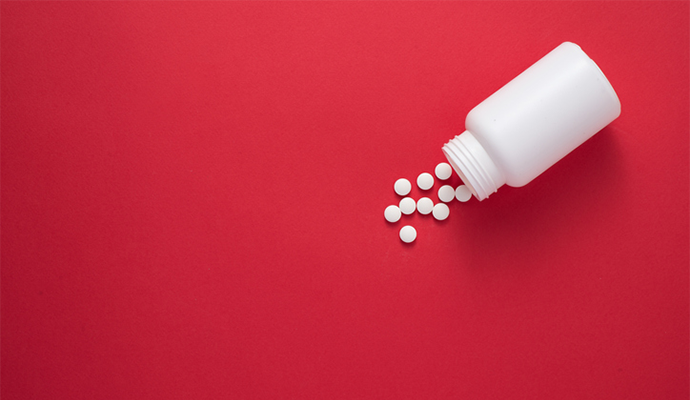Roche, Atea Pharmaceuticals to Develop Oral COVID-19 Antiviral
The companies will jointly develop Atea’s COVID-19 antiviral, which has the potential to be the first novel oral drug to treat coronavirus patients in and out of the hospital.

Source: Thinkstock
- Roche and Atea Pharmaceuticals recently partnered to develop, manufacture, and distribute Atea’s investigational oral COVID-19 antiviral globally.
The oral treatment, AT-527, is a direct-acting antiviral agent derived from Atea’s purine nucleotide prodrug platform. It works by blocking the viral RNA polymerase enzyme needed for viral replication, according to the announcement from Roche.
The collaboration aims to boost the development and manufacturing of AT-527 to investigate its safety and efficacy, and to provide it to patients globally as quickly as possible.
The oral antiviral is currently being studied in a Phase 2 clinical trial for patients with moderate to severe COVID-19.
"The ongoing complexities of COVID-19 require multiple lines of defense. By joining forces with Atea, we hope to offer an additional treatment option for hospitalised and non-hospitalised COVID-19 patients, and to ease the burden on hospitals during a global pandemic," Bill Anderson, chief executive officer of Roche, said in the announcement.
“In jointly developing and manufacturing AT-527 at scale, we seek to make this treatment option available to as many people around the world as we possibly can."
AT-527 has the potential to be the first oral COVID-19 treatment for patients that are not hospitalized. The small-molecule DAA process for the antiviral also allows for a large amount to be produced at one time.
Under the terms of the agreement, Atea will receive an upfront payment of $350 million from Roche, with the potential for future milestone payments and royalties.
A Phase 3 trial to explore the potential use of At-527 in patients outside of a hospital setting is expected to start in Q1 of 2021. Additionally, the antiviral may also be developed for post-exposure prophylactic settings.
If clinical trials show positive outcomes, Atea will be responsible for distributing the antiviral in the US and Roche will be responsible for distribution outside the US.
“AT-527 is expected to be ideally suited to combat COVID-19 as it inhibits viral replication by interfering with viral RNA polymerase, a key component in the replication machinery of RNA viruses. Importantly, the manufacturing process for our small molecule direct-acting antiviral allows us to produce AT-527 quickly and at scale,” said Jean-Pierre Sommadossi, PhD, chief executive officer and founder of Atea.
Currently, the leading oral COVID-19 antiviral showing continuous promise in clinical trials is Gilead’s remdesivir.
A recent randomized, placebo-controlled clinical trial of remdesivir in adults hospitalized with COVID-19 found that patients who received remdesivir had a median recovery time of 10 days, while those who were assigned to placebo had a recovery time of 15 days.
The results published in the New England Journal of Medicine also noted that mortality was 6.7 percent with remdesivir and 11.9 percent with the placebo by Day 15 and 11.4 percent with remdesivir and 15.2 percent with the placebo by Day 29.
In September, FDA expanded the emergency use authorization of the drug to include all hospitalized adult and pediatric patients with COVID-19.
The decision stemmed from the agency’s ongoing review of the May emergency use authorization of the drug, which showed that it may be effective for the treatment of suspected or laboratory-confirmed coronavirus in severely ill patients.
FDA ultimately concluded that the known and potential benefits of remdesivir outweighed the known and potential risks.
More recently, HHS announced that US hospitals can go back to purchasing remdesivir directly from the drug’s distributor.
“Now, federal government oversight of the allocation of Veklury is not required because the drug is no longer a scarce resource—a tribute to progress we have made against COVID-19 and to the strength of our partnerships with the private sector,” HHS Secretary Alex Azar said in the announcement on October 1.
